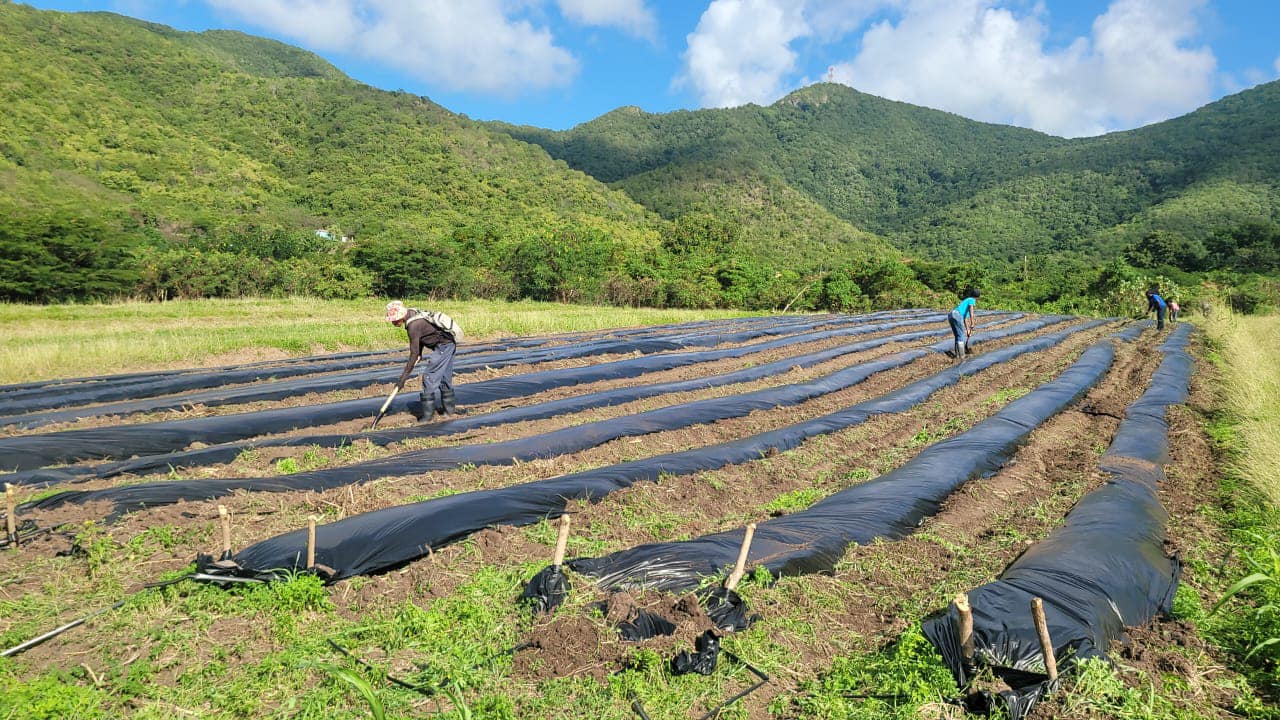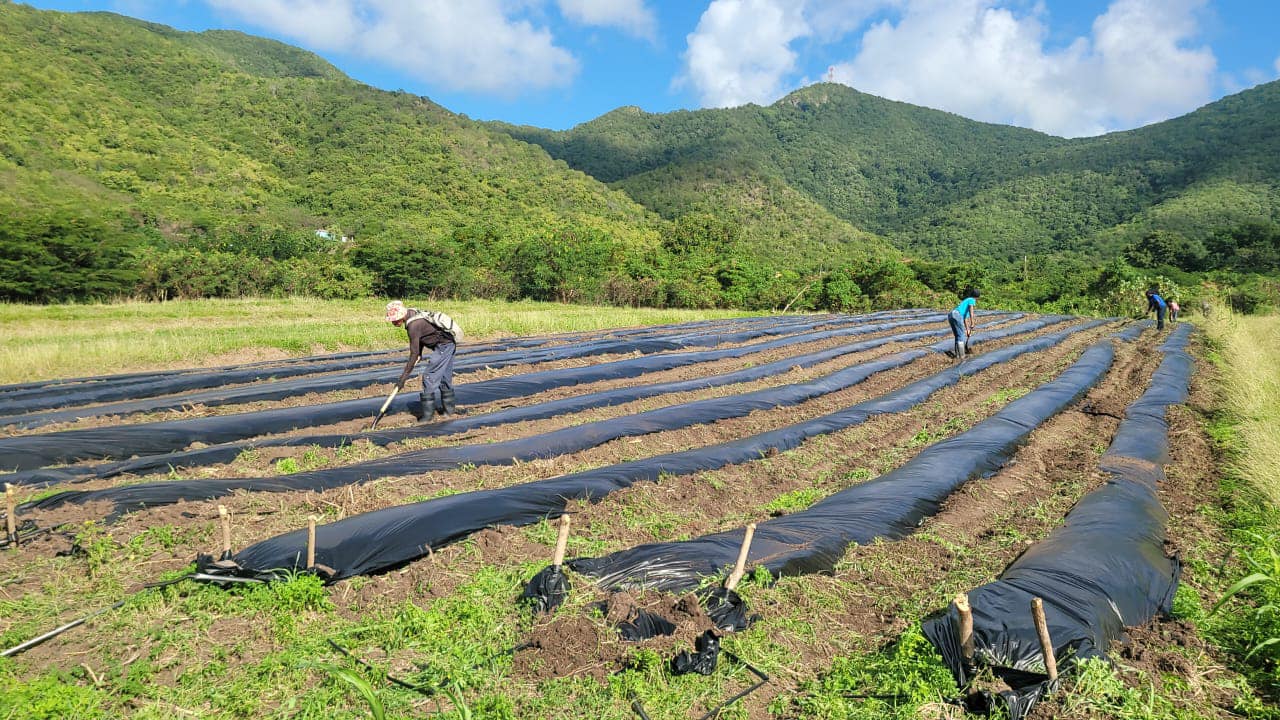


5000 New Plantlets Arrive to Boost Antigua Black Rehabilitation Project by Brent Simon
The iconic Antigua Black known as the sweetest pineapple in the world, is gaining new momentum through a revitalization project funded and spearheaded by Inter-American Institute on Agriculture (IICA) in partnership with the Ministry of Agriculture and CARDI.
Another milestone was achieved last Thursday 29th November with the arrival of Five Thousand (5000) tissue cultured plantlets from the Orange Hill Biotechnology Canter in St. Vincent and the Grenadines.
These plantlets are the final portion that were specially propagated for the Antigua Black Rehabilitation Project aimed at scaling up pineapple cultivation in Antigua to sustainable levels not seen since the 1980’s. The project focuses on improving genetic resources, enhancing cultivation techniques and preparation for future production. The plantlets, nurtured in a controlled environment, boast a survival rate of about 85-90%, demonstrating the effectiveness of CARDI’s weaning and pest management strategies.
The plantlets will be transplanted at the Cades Bay Agricultural Station, a historic site for Antigua Black Pineapple production. Once the centrepiece of local agriculture, Cades Bay is now undergoing a major transformation with modern technologies such as drip irrigation and plastic mulch systems. These innovations will optimize water usage, control weeds, and create favourable growing conditions for the pineapples.
In addition to the infrastructure upgrades, some of the MOA nursery, technicians and local farmers are receiving training in nursery management and sucker multiplication, ensuring the project benefits from both traditional knowledge and scientific advancements. This approach will create a robust pipeline for clean planting material, a critical step for sustaining the initiative.
It is anticipated that this project in the near future will be a part of a broader Caribbean initiative to reduce food imports by 25% by 2025. Collaboration with regional and international partners, including the University of the West Indies, has opened opportunities for research into DNA fingerprinting and other advanced techniques to preserve the unique qualities of the Antigua Black Pineapple.
The phased planting of the new plantlets will begin in early 2025, with expectations of significant yields by 2026. Over the next two to three years, the project aims to produce sufficient suckers and fruit to re-establish the pineapple as a staple in local and export markets.
The Antigua Black Pineapple is more than just a crop; it is a national symbol and a vital component of the island’s agrotourism appeal. The revitalization effort is expected to create jobs, strengthen food security, and contribute to economic growth. By upscaling production and maintaining quality, Antigua is positioning itself as a leader in the premium pineapple industry.
This milestone marks a promising step towards revitalizing a legacy crop while ensuring its sustainable future.
Advertise with the mоѕt vіѕіtеd nеwѕ ѕіtе іn Antigua! We offer fully customizable and flexible digital marketing packages.Contact us at [email protected]
Related News

Police question suspect in church break-ins

Court Postpones Police Officer’s Trial, Magistrate Warns Against Further Delays

Antigua Cruise Port Launches Record Breaking Season










